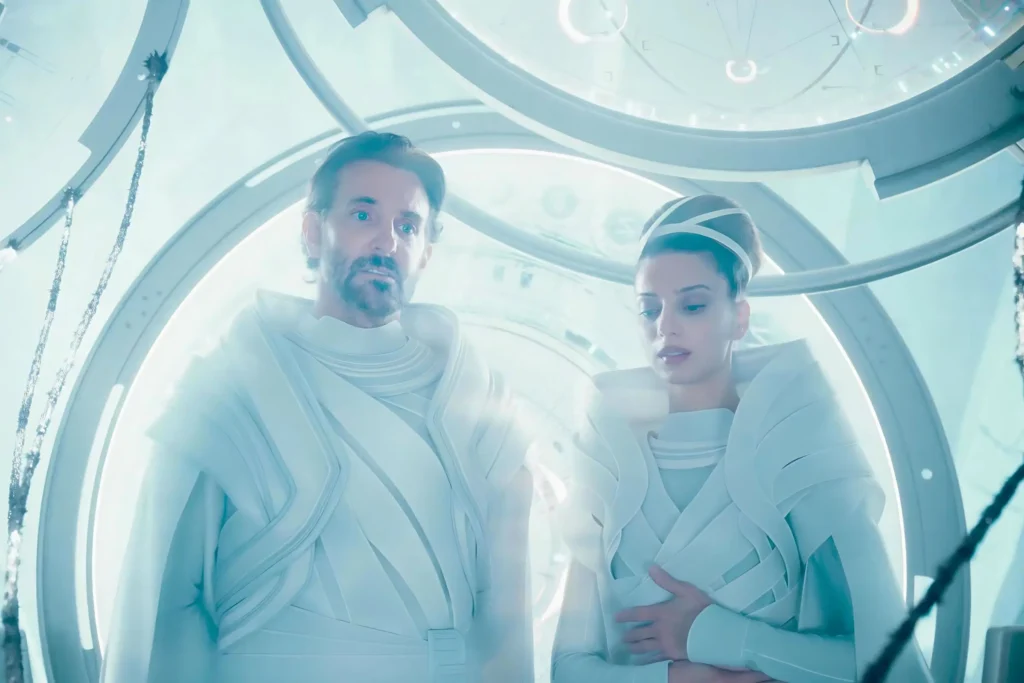In the past two articles in this three part series, I’ve argued that in past Superman movies, Superman was written as a Christ figure, or someone who emulates an important…
In the past two articles in this three part series, I’ve argued that in past Superman movies, Superman was written as a Christ figure, or someone who emulates an important aspect or aspects of Christ’s character, mission or identity. For the newest movie, Superman (2025), I’ve made the case that this Superman is not a Christ figure, and is instead more of a humanist or existentialist exemplar.
But, so what? So what if this Superman is more humanist than messianic? For those that enjoyed the movie (and I certainly did too), this whole article might seem like another pointless addition to the never ending culture war. Superman (2025) is supposed to be a fun summer movie that you enjoy for the visuals and don’t think too deeply about. Right?
The truth is, very few (if any) instances of art and media are truly neutral, philosophically speaking. The significant changes to Superman’s origins and character were clearly deliberate. And if deliberate, then they were likely motivated by a philosophical stance or agenda. Our art, including “fun summer movies”, shapes us and forms us as people. The messages in our movies, shows and literature inform and influence our worldviews. So as Christians, we need to be constantly mindful and vigilant of all the implicit messages that any story, even the fun and silly ones, is trying to communicate.

Christian Existentialism
So what do we do with this new Superman? Must Superman be a Christ figure to be acceptable? First, it must be said that existentialism isn’t an inherently bad philosophy. There were some Christian existentialists, such as Søren Kierkegaard, Blaise Pascal and Fyodor Dostoevsky. They generally upheld the importance of personal choice. Pascal, for example, is famous for “Pascal’s Wager”, which encourages people to believe in God even in the absence of evidence, as rejecting God could have dire consequences.
And some existentialist views do correspond to Christian teachings. Existentialism teaches that your choices make you what you are. We can find a similar theme in 2 Peter 1:3-11. Here, Peter tells us that though God has “given us everything we need for a godly life”, we are to “make every effort” to complement our faith with various spiritual virtues. These virtues “will keep you from being ineffective and unproductive in your knowledge of our Lord Jesus Christ”. Whoever does not have them is “nearsighted and blind”. So in some sense, we are responsible for the formation of our own character, and it is up to us (though of course with the help of God’s grace) to make the right choices in order to be a virtuous person.
This means that there are many positive lessons to learn from Superman (2025). Just like Clark, none of us have a choice when it comes to the parents we have, or the situation we are born into. But we can make the right choices despite our origins, as Clark did. No matter how ungodly or godly our household was during our childhoods, for example, it is up to each of us individually to accept God’s free gift of salvation and choose to obey Him.

Sisyphus or Savior?
On the other hand, Superman has long been a prominent Christ figure (at least in the movies). One less Christ figure in media means even less Christian influence in contemporary entertainment. And Superman (2025) is not alone. Shows like Invincible and The Boys turn “superman” figures into ruthless conquerors or morally bankrupt, egocentric frauds. These shows teach that you can’t trust the Christ figures. Rather, people must abandon hope in salvation from above and embrace the existentialist idea that you can only save yourself.
Maybe we as Christians don’t want every single character in our media to be just another flawed human being. Maybe we do want Christ figures in our films, shows and literature. At least, we might sometimes want stronger, more explicit Christian themes in our entertainment rather than just generic ethical messages that can apply to any worldview. The less Christ figures we have in our media, the less interested our culture might become in Christ. The more the gospel gets squeezed out of our stories, the more our entertainment becomes the salt that has lost its taste, or the light which is hidden under a basket.
Maybe Superman doesn’t have to be messianic for us to enjoy him. But surely we want some character out there to remind us of Christ.





